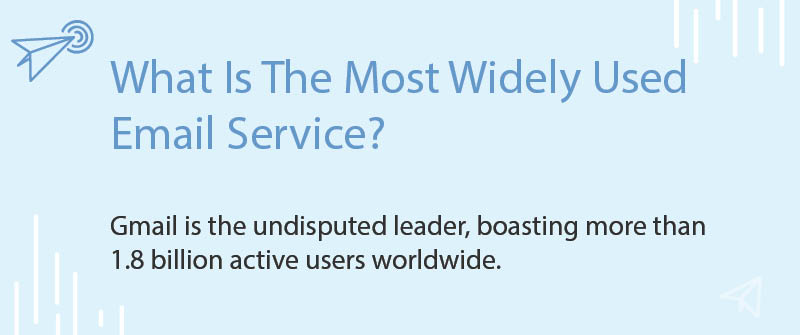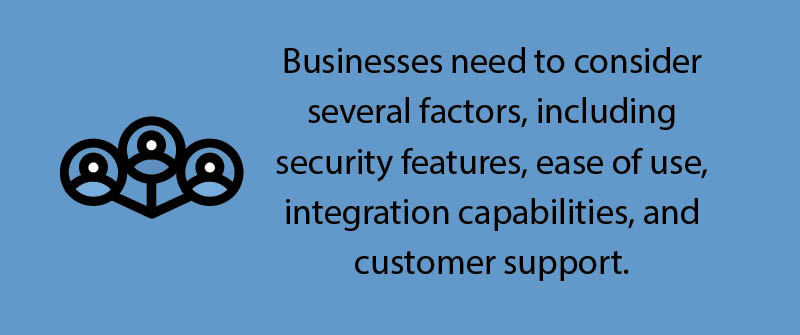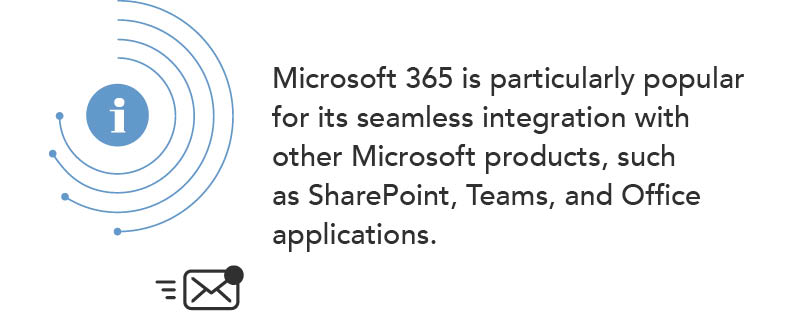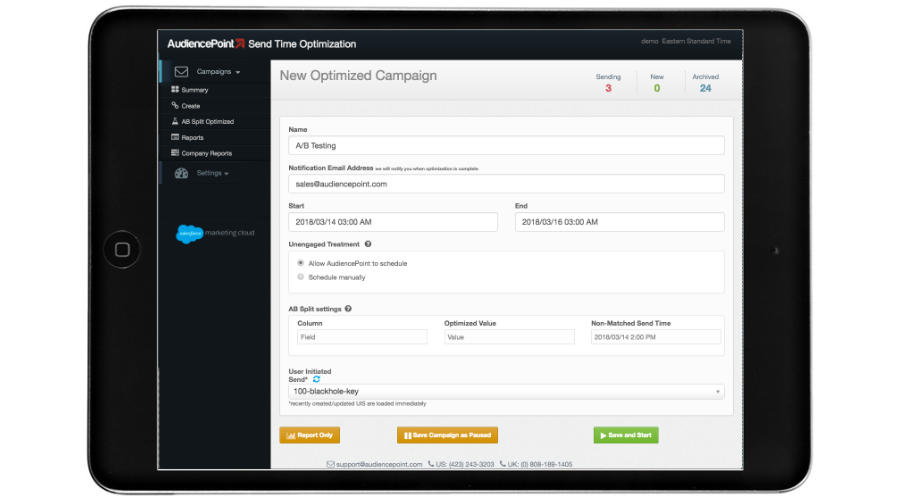AudiencePoint is thrilled to announce our new integration with Klaviyo! AudiencePoint is looking for partners to pilot our...
The email service market is highly competitive, with a few key players dominating global usage. Understanding the most used email service providers in the world can help email marketers tailor their email marketing strategy effectively. Selecting a suitable free email provider is crucial, as it plays a significant role in everyday online activities. The landscape is influenced by various factors, including user interface, reliability, security features, and integrations with other tools.
As of the latest statistics, Gmail is the undisputed leader, boasting more than 1.8 billion active users worldwide. The platform’s integration with other Google services, such as Google Drive and Google Calendar, enhances user convenience and efficiency, making it a top choice for both personal and professional use. Following closely behind is Yahoo Mail, which maintains a significant user base in several regions worldwide, particularly in the USA. Various free email service providers, such as Outlook and GMX, offer different features and advantages, catering to users’ diverse needs.
Microsoft Outlook also ranks highly, with a substantial number of users leveraging its robust features, including seamless integration with Microsoft’s suite of Office products. Other notable mentions in the Top 20 email providers include Apple Mail, Yandex, and Zoho Mail, each offering unique features and benefits that cater to different user needs.
When comparing these top players, Gmail’s popularity stems from its wide array of features such as powerful search functionalities, spam filtering, and storage capabilities. Yahoo Mail continues to attract users with its generous storage and user-friendly design. On the other hand, Outlook offers unmatched tie-ins with enterprise-grade tools, making it a preferred choice for business environments.
Ultimately, the most widely used email service varies depending on user requirements and preferences. Whether for personal or business use, understanding the strengths and limitations of these providers can help in making an informed decision.

What Is The Best Email Provider For Personal Use?
Choosing the best email provider for personal use requires considering several factors, including ease of use, security features, and available storage. Each user’s needs can vary, making it important to identify what features are the most critical for individual preferences.
Criteria for Choosing a Personal Email Provider
When looking for a personal email provider, the following criteria are essential:
- Usability: A good email provider should have an intuitive interface and be user-friendly, even for those who may not be tech-savvy. Additionally, consider the advantages of using email clients for advanced mailbox management and organization.
- Security: Features like two-factor authentication, encryption, and spam filtering are critical to protect personal information.
- Storage: Ample storage space is vital for users who need to keep emails and attachments organized without constantly having to delete items.
- Compatibility: The ability to sync with other devices and services seamlessly helps to keep communication consistent across platforms. Managing multiple email addresses effectively is also crucial, and certain email providers and desktop platforms assist users with organizing these accounts.

Top Free Email Services for Personal Use
For those seeking a free email account, here are some of the best options among various free email service providers:
- Gmail: Known for its robust spam filter and integration with Google services, Gmail is a top choice for personal use.
- Outlook: Microsoft Outlook offers integration with Microsoft Office and other productivity tools, making it highly versatile.
- Yahoo Mail: Yahoo provides ample storage space and a variety of customization options, making it a solid choice for personal email.
- ProtonMail: For those who prioritize security, ProtonMail offers encrypted email services while remaining user-friendly.
Paid Email Services with Advanced Features
For users looking for more advanced features, paid email services can offer additional benefits:
- ProtonMail Plus: Enhances the basic ProtonMail offering with more extensive storage and domain options.
- Zoho Mail: Known for its excellent customer support and additional business features, Zoho Mail is a great option for those willing to invest.
- FastMail: Provides advanced organizational tools and a clean, ad-free experience, ideal for personal and professional use.
Ultimately, the choice of the best email provider for personal use boils down to individual preferences and needs. By considering the above criteria and exploring both free and paid options, users can find an email service that best fits their lifestyle and requirements.
What Are The Top 10 Business Email Service Providers?
Criteria for Selecting a Business Email Provider
Choosing a business email provider requires careful thought and evaluation. Businesses need to consider several factors, including security features, ease of use, integration capabilities, and customer support. Key attributes like spam protection, encryption, and robust authentication mechanisms are crucial for protecting sensitive company data. Additionally, providers that offer seamless integration with other business tools, such as CRM systems and cloud storage solutions, can significantly streamline operations. An intuitive user interface, reliable customer support, and the use of the Internet Message Access Protocol (IMAP) for email management are also important, as they help to ensure smooth daily operations.

List of Top 10 Business Email Services
Based on these criteria, here are the top 10 business email providers:
1. Google Workspace (Gmail for Business)
Google Workspace, formerly known as G Suite, offers robust security features and integrates seamlessly with Google’s suite of productivity tools like Google Drive, Docs, and Calendar.
2. Microsoft 365 (Outlook)
Microsoft Outlook is popular for its seamless integration with Microsoft’s Office suite, providing powerful tools for email management, scheduling, and collaboration.
3. Zoho Mail
Zoho Mail is known for its strong privacy features and integration with the broader Zoho ecosystem, making it a comprehensive solution for managing various email accounts for small and mid-sized businesses.
4. ProtonMail
ProtonMail offers end-to-end encryption and is designed with privacy and security at its core, making it an excellent choice for businesses that prioritize data protection.
5. Fastmail
Fastmail offers a user-friendly interface and strong security features, and it is known for its fast performance and reliable support services.
6. Rackspace Email
Rackspace Email is renowned for its comprehensive support and robust email hosting capabilities, providing excellent reliability for business communications.
7. Intermedia Exchange Email
Intermedia offers hosted Exchange services with enhanced security and compliance features suitable for businesses with stringent requirements.
8. AOL Mail
While AOL Mail might seem like a surprise entry, its business-tier offerings provide adequate security and reliability for smaller enterprises, similar to global mail exchange services.
9. IceWarp
IceWarp is known for its collaborative features, integrating email with team chat, document management, and video calls, making it a versatile choice.
10. BlueHost
Primarily known for web hosting, BlueHost also provides robust professional email services, which are particularly beneficial for businesses running their websites on BlueHost.
Features and Benefits for Business Users
These business email providers offer features designed to meet the specific needs of organizations. Enhanced security features ensure data safety, while reliability and uptime guarantees help maintain seamless communication. Integrations with other business tools enable productive workflows, and robust storage options cater to significant data volumes.
What Email Platform Do Most Companies Use?
Overview of Popular Email Platforms Among Companies
In today’s digital landscape, email remains a critical communication tool for businesses of all sizes. Exploring which company email platforms are most commonly utilized reveals significant insights into email service providers that best meet business needs. In the USA, platforms like Microsoft 365, G Suite (Google Workspace), Zoho Mail, and iCloud Mail are among the most widely adopted due to their robust features and reliability.
Microsoft 365 is particularly popular for its seamless integration with other Microsoft products, such as SharePoint, Teams, and Office applications. It’s favored for its comprehensive security and compliance features, which are essential for enterprise-level businesses. G Suite, on the other hand, appeals to companies looking for a cloud-first approach and collaboration tools, leveraging the familiarity of Google’s ecosystem. Zoho Mail offers a cost-effective solution with a broad suite of applications tailored for small to medium-sized enterprises.

Case Studies of Email Platform Usage in Companies
Microsoft 365’s adoption by multinational corporations such as BP (British Petroleum) showcases its ability to support extensive global operations with stringent security requirements. Conversely, G Suite’s use by technology firms like Spotify illustrates its efficiency in fostering innovation and real-time collaboration across distributed teams. For iCloud Mail users, Apple provides dedicated customer support through various channels such as phone, chat, or email, which distinguishes it from other free email providers. These real-world examples highlight how specific business needs can dictate the choice of email platforms.
Advantages and Disadvantages of Top Platforms
When selecting an email service provider, understanding the strengths and weaknesses of each option is crucial. Microsoft 365 offers unparalleled integration for Microsoft-centric environments but can be complex to manage for smaller businesses. G Suite excels in ease of use and collaboration, but some enterprises may find its administrative controls less comprehensive. Zoho Mail provides an affordable and customizable solution but may lack the advanced networking capabilities required by larger companies.
Optimizing your company’s email platform is key to enhancing communication efficiency and achieving strategic business goals. AudiencePoint’s advanced email engagement tools provide you with actionable insights to better understand your subscribers and optimize your email strategy. Our platform specializes in re-engagement, email verification, and IP warming, ensuring greater deliverability and increased revenue for your business. Contact Audience Point Today!





